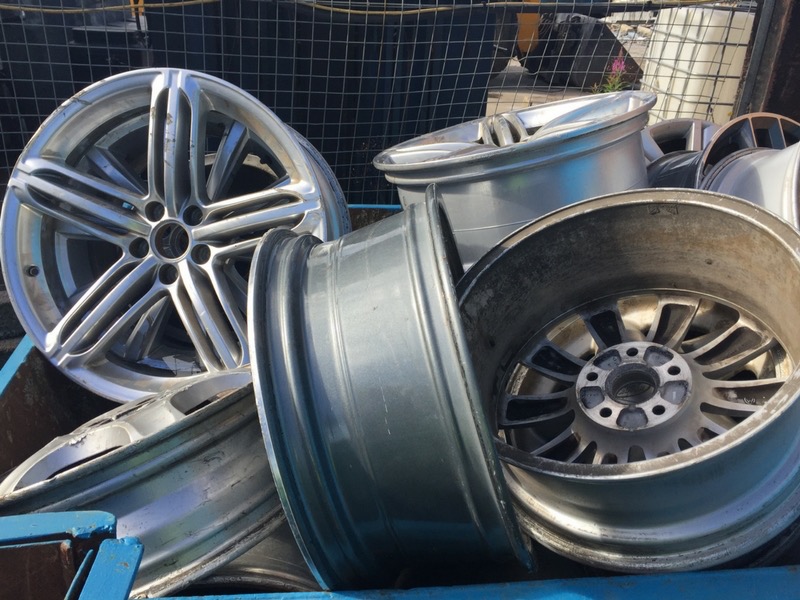We handle scrap metal of all types at both our Glenfarg recycling complex and our recently established Shore Road Recycling Centre in Perth.
Metal recycling is a vast international industry with around 400 million tons of scrap and redundant metals being recycled worldwide each year.
Binn Group is now one of East/Central Scotland’s largest accredited metal re-processors, handling scrap metal of all types at both their main Glenfarg recycling complex and their recently established Shore Road Recycling Centre in Perth.
The sites have slightly different dynamics in that the majority of scrap metal received at Glenfarg is brought in by skips and other waste collection vehicles, whereas the Shore Road site also welcomes a large number of individuals and small businesses dropping off small amounts of scrap metal.
Historically, however, certain scrap metal dealing was seen as vulnerable to misuse, with anonymous metal thieves benefitting from a quick return in cash in exchange for their potentially illegally sourced goods.
But recently introduced legislation is playing its part in blocking illegal trade, tightening up the industry and giving back credibility to the accredited traders.
The introduction of a “cash ban” means that all metal scrap brought into traders has to have full traceability, the handler has to provide ID and only bank transfers or cheques – rather than cash – can be given in exchange for the metal.
“One of the key aims of this legislation was to deter the opportunist thieves who were cashing in stolen lead from church roofs, uplifted railway tracks, manhole covers or similar easy-to-steal metal goods,” explained Binn Group Commercial Director Jim Brown.
“Immediately after the introduction of this new ruling we did see a dramatic drop in the amount of scrap metal brought to us,” he added, “but we believe this was due mainly to people’s uncertainty about what they could do.
“Over time, things have settled and we’re now handling substantial amounts at both our receiving centres.”
Binn Group has been processing scrap metal for many years and their experienced operators ensure expert sorting and grading of the different metal streams.
“All the metals have different values so it’s important to have them separated and graded,” said Jim.
“Scrap metal has probably always had a value because it can be recycled into high value new metals. Virtually all metals can be recycled in this way, therefore many people are used to segregating that type of material because they know it has a residual value.
“Metals recycling in the UK supplies a major worldwide industry as we produce considerably more scrap metal than is required for domestic markets and the majority of our processed metals are exported to major re-processors in mainland Europe.”
FACT FILE –
- Binn Group’s high capacity recycling facility at Glenfarg is capable of handling vast quantities of raw scrap in various forms, from redundant plant and machinery, machinery plate metal, piping, semiconductors and steel structures in various shapes and forms
- The recycling process varies for different metals, but generally, produces metals of equivalent quality.
- Steelmaking, for example, uses scrap metal as a major raw material through the electric arc furnace process. It is also used in the production of copper, aluminium, high-quality tool steel and stainless steel.
- Metals recycling also has excellent “green” credentials – it protects the environment and saves energy. Using secondary raw materials means less use of natural resources which would otherwise be needed to make new metal compounds – such as iron ore in steelmaking; nickel in stainless steel; or alumina and bauxite in aluminium smelting. There are also considerable savings in energy and reduced CO2 emissions, in production methods using recycled materials.
- For example – using recycled aluminium in production of that metal saves about 95% energy – copper 85% – steel 70%. And recent EU figures indicate that using recycled raw materials, including metals, cuts CO2 emissions by some 200 million tonnes every year.

